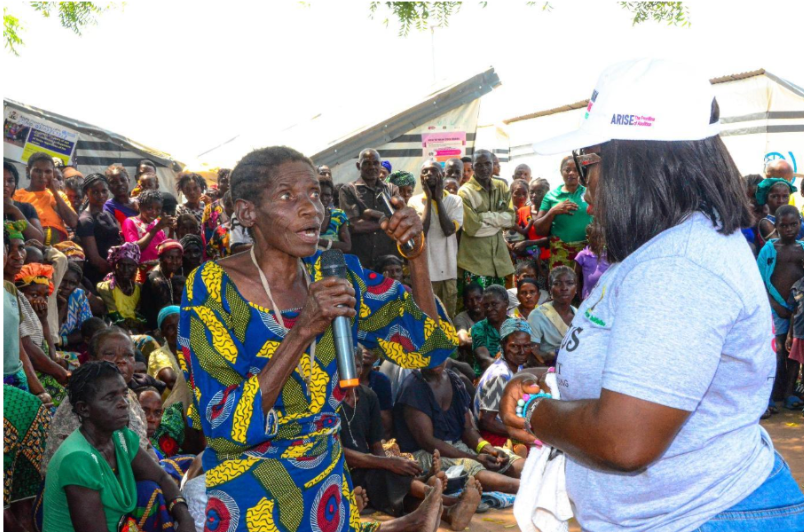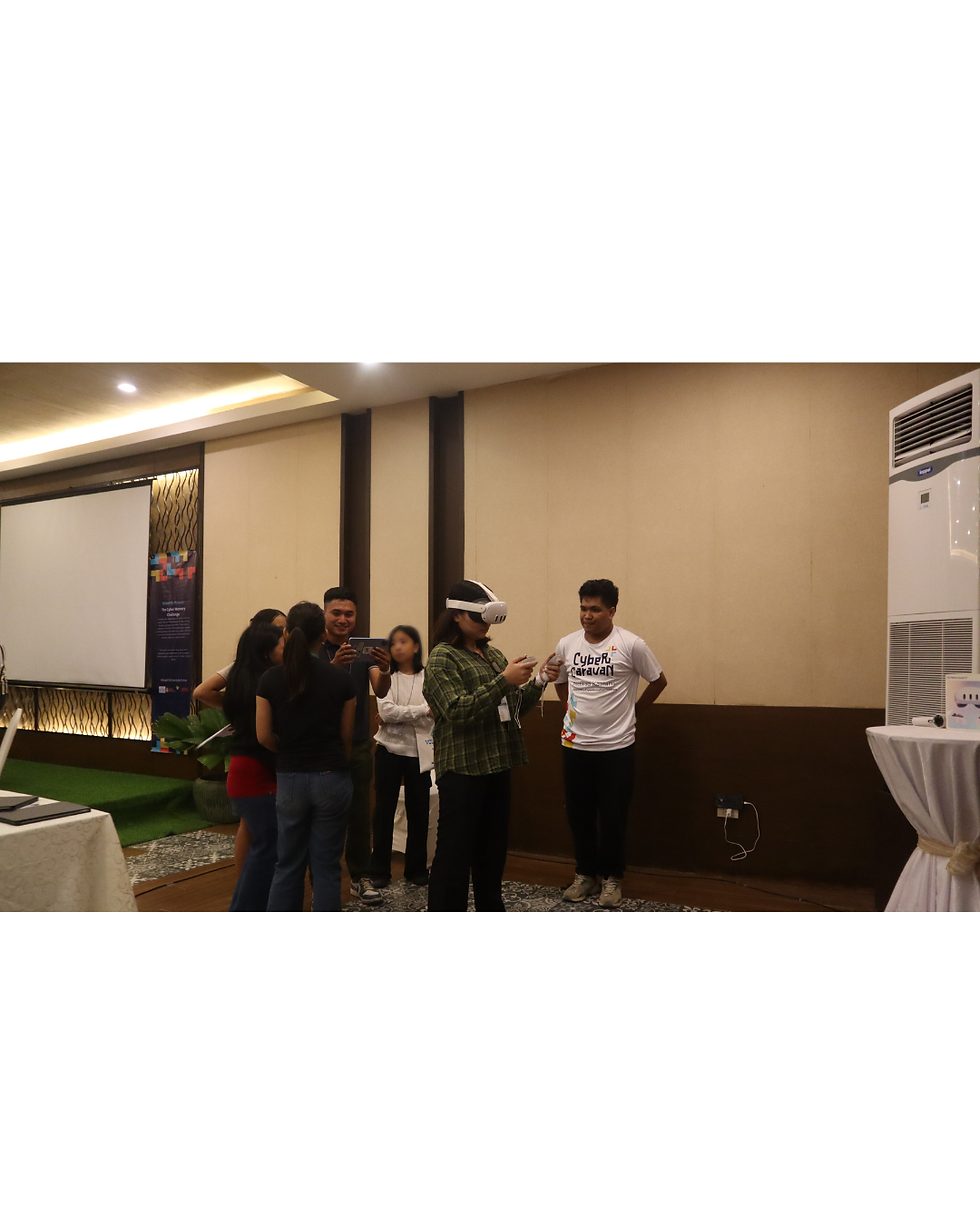30 July: Human Trafficking and Technology in the Modern Era
- Jul 29, 2022
- 4 min read
Updated: Jul 30, 2022
Arise Nigeria Coordinator, Chinomso Osuji, writes on the relationship between human trafficking, prevention work and digital platforms. This piece marks July 30th - World Day against Trafficking in Persons, drawing on this year's theme 'Use and abuse of technology'.
Today, on July 30th, the global community reiterates its stance against human trafficking, a highly networked and complex crime that threatens the chance humans have to a decent and fulfilling life, lived in dignity. This year’s theme “the use and abuse of technology” highlights the ways technology can enable or impede human trafficking.
Since the outbreak of COVID-19 pandemic, the internet and digital platforms have become even greater necessities for everyday life, and the use of technology has risen globally, including in Nigeria. For example, in Nigeria, virtual work, meetings, classes, church services and digital payments are replacing in-person engagement and cash payments, and there are certain benefits to these developments. However, reports show that the internet and digital platforms are also being used by traffickers for recruiting, organising transportation; arranging exploitation and controlling victims.
According to a statement by United Nations Office on Drugs and Crime (UNODC) representative in Nigeria, Mr Oliver Stolpe, “2020 UN Global Report on Trafficking in Persons shows that the use of the internet has been integrated into the business model of traffickers”. Confirming this, the Director General of NAPTIP (National Agency for the Prohibition of Trafficking in Persons) has explained that traffickers advertise fake scholarships on various social media platforms to lure people, necessitating NAPTIP’s partnership with Facebook to monitor online trafficking, child exploitation and sextortion.
Emerging trends
Authorities in Nigeria reported a decline in external trafficking since the outbreak of the COVID-19 pandemic, attributable to restrictions on movements and gatherings. Consequently however, people are increasingly trafficked internally for varying forms of exploitation, such as sexual exploitation, domestic servitude, forced labor, debt bondage, child labour, illegal adoption and trade in human beings.
According to Dr Waziri-Azi, the Director General of NAPTIP, emerging trends include “orphanage trafficking, baby factories, use of victims for other crimes (including drug courier), Q-Net or Q-Link, illegal adoption, cryptic pregnancy, buying and selling of children, hunting - involving a trafficker actively pursuing a victim, typically on social media, fishing- when perpetrators post fake job advertisements and fake scholarships and wait for potential victims to respond, Adverts on non-existing football clubs in some middle east countries and using global sports fiestas to lure out their victims”
Using Technologies and digital Platforms to combat Human Trafficking
A background paper on “the role of technology in human trafficking” produced by UNODC highlights different simple and sophisticated ways technology and digital platforms can be used to combat human trafficking. Arise partners in Nigeria are using technology and digital platforms for capacity building and network strengthening to effectively address trafficking from its roots.
The Nigerian Communications Commission (NCC) reported a surge in internet traffic in Nigeria from 147,537.52TB to 196,163.42TB in just the first 9 months of the pandemic, confirming the increase in the use of digital platforms. These platforms have been embraced by civil society organisations, government agencies and anti-trafficking coalitions for different purposes such as; awareness raising, alerting authorities and the public on suspicious activities and perpetrators, and communication that aims to deepen the effectiveness of diverse interventions.
Despite these changes, the main driver of human trafficking and exploitation across Nigeria in general is poverty. A lack of opportunities, linked to economic downturn, remains the reality for many - and we observe high levels of insecurity. These levels of poverty lead to exploitation in a variety of ways.
Based on the account of our frontline partners in Nigeria, we understand that poverty and the quest for a better life predicated on the belief that “abroad is better” are key explanations for falling into exploitative situations.
An increasing number of young people are now more susceptible to illegal migration and trafficking given severe hardships, insecurity, and political instability burdens - which have adversely affected livelihoods and access to economic opportunities in the country.

Above: One of many meetings with Arise's anti-trafficking network of Catholic Sisters in Nigeria.
It is important to note that despite the expansion of technology and digital space a significant proportion of young people in rural areas are yet to have access to the internet or social media. Therefore, while highlighting the role of technology in enabling or combatting human trafficking, we should continue to shine a light on traditional methods, and continue to invest in and prioritise traditional interventions in developing countries like Nigeria as well as supporting digital approaches.
Leveraging technology to combat human trafficking complements traditional interventions such as physically raising awareness in local communities, schools, places of worship, markets and public, counselling sessions for schoolgirls, and livelihood programs. These methods remain key tools to minimising vulnerabilities that enable trafficking. Also, continuous skills development for communities is central to harnessing both approaches, for varying challenging contexts.
In the wake of heightening insecurity across Nigeria and the need to rise to the challenge of human trafficking, Arise partners, including the anti-trafficking network of Catholic Sisters in Nigeria, are using technology and digital platforms to develop the skills of members, as well as engage in network-strengthening activities such as; training; mentorship program; creation of a user-friendly online material bank for continuous learning of network members, and an online network map to deepen collaboration amongst members, cross-learning and communications on mobile applications.
Though it is too early to determine the impact of these activities on human trafficking in communities, there are visible changes in partners approach - reporting knowledge gains across various topics relevant to effectively confronting this problem. Arise and their partners in Nigeria will continue to work and harness emerging tools.
In conclusion, combating Human trafficking requires adapting interventions to a continuously changing world, and therefore requires actors and stakeholders to invest in gaining new skills to adapt interventions to emerging trends while deepening traditional strategies.



